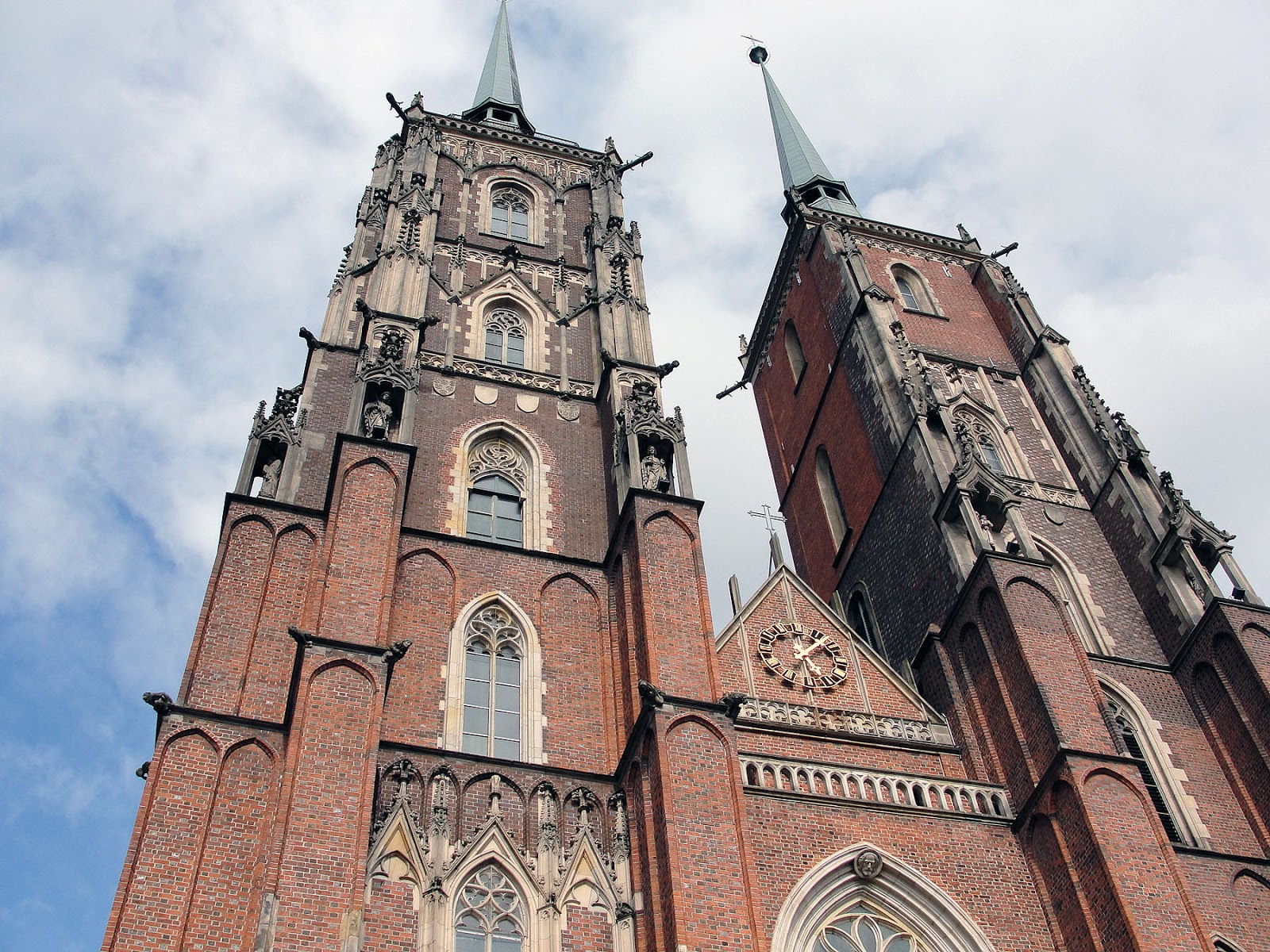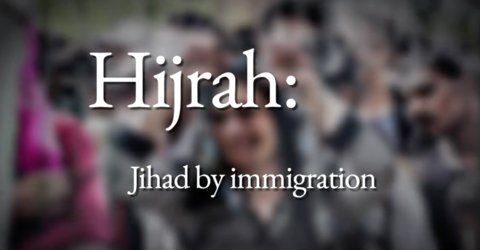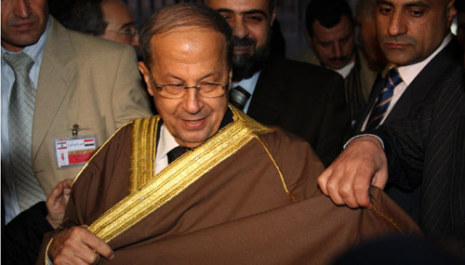I just have a couple of points to make on (before) yesterday’s interview between Hizbullah’s SG and Tayyar’s leader. These are open questions more than anything else. My sentences sometimes are brief and I don’t develop every idea very much. So there is a lot to be said on each.
Of course, the purpose of the interview was to make sure people do not forget that the Hizbullah-Tayyar alliance, understanding, rapprochement, whatever you want to call it is alive and kicking. To this effect their interviewer Jean Aziz (a journalist at Al Akhbar who was clearly overwhelmed by the stature of the interviewees) had many pertinent questions that addressed most of people’s ‘common fears’. TV in the Middle East has long become an outlet for accountability when other social and political institutions fail to deliver. Of course, in this case accountability is mere persuasion: People make whatever they make out of what the political actor argues (believing or not, making sense etc). But the political actor struggles hard in order to explain and justify himself. That’s the most fascinating part. The first impression of the interview is that Aoun and Nasrallah know and respect each other regardless of any agreement or entente. I’m talking at the individual level, and you don’t need a psychoanalyst to dig that out, you can just read faces. How come this is so I don’t know. At the level of Aoun, I think it is a very recent discovery dating from after his return and the Syrian withdrawal; when talks started between both groups. And talking about talks, that’s something that was never covered or investigated further: What happened during these joint parliamentary committees that set the stage for their Paper of Common Understanding? What ideas, notions, arguments, were discussed that led to dividing the paper in its final points? How did the various parliamentary members interact with each other?
The most important idea that comes out of this interview is the turbulent reconciliation of Islamic and Secularist visions into a Nationalist one. And when I say ‘reconciliation’ I don’t think at all that there is really a fixed ‘Islamic’ worldview or another rigid ‘secular’ one, even if the actors being interviewed do think so. There is a discursive effort to promote a clear vision of belonging or being that evolves with changing political opportunities and through other contingencies such as specific insitutional influence (the presence of the modern state and its formidable capacity to mobilize and name for example).
Aoun differentiates between an Islamic worldview and a secular one and he explains it: An Islamic system involves God as the source of authority and a secular one comes as a result of a social contract between citizens. Notwithstanding the many simplifications and contradictions Aoun steps into when talking about these conceptualizations, he says something else that caught my attention which is that “no matter if one is a secular or an Islamist, at the end of the day we agree on the fact that we are all mowatinin”. Now I have thought a bit about this and there is not really a good way of translating what mowatinin means but I would say that it is half way between a citizens and kind of a national (al mowataneh).
This helps us understand how two radically different stances towards the Syrian presence could have been merged together through the ultimate banner of nationalism. In the very beginning Aziz asks Nasrallah what does he think of Aoun given that both of them come from such a different political background. Nasrallah answers quite simply that what he admires in Aoun is the integrity of his nationalistic stance. For Hizbullah, the liberation of the land comes with the help of the Syrians (securing channels for weapons, covering here and there etc.), for Tayyar, Syrian presence symbolized the failure to reconcile the ‘national’ consitutency(ies).
How did we come to this? Why do we have an Islamic revolutionary initially driven by ethical/moral etc. Goals of fighting the oppressors, erecting narrow banners such as nationalism? Simply because it pays to be a nationalist today. Because the Lebanese state is once more a useful tool for reaching political goals. The Palestinian question (camps and weaopns), the water problem (wazani river), and the territorial issue are much more easily addressed through the nationalist banner or frame (all points discussed in the Paper of Common Understanding). Through the instrumentalization (the use) of the Lebanese state, these crucial issues can be better resolved. When Hizbullah approaches the State in this struggle of power, it becomes gradually immersed in all these problems of definitions.
Here we open a little parenthesis with what goes on in Turkey in terms of clash between ‘secularists’ and ‘islamist’ each one of them claiming to work through the ‘democratic’ path. In this case, the point of contention is the very nature of Turkish nationalism, Turkish raison d’être and the mutliple stories that feeds it. I will write more on Turkey especially in the light of the headscarf issue.
The questions left open (one of the subjects of my research), is how does Hizbullah reconcile all these discursive caveats (Islamic, religious, nationalist, revolutionary, geographic, ethnic, pragmatic etc) in the face of this approaching “Lebanese” State and everything it defines (territory, population, etc). The more Hizbullah’s elite feels it can grab the State and its formidable mobilization power (of course Hizbullah has been archiving way before approaching the State) the more it will sucumb to the grip of its history, narrative, etc. One symptom of that is that its alliance with one of the most virulently nationalist movement that is Tayyar propels it into new discursive territories.
Now of course it does not really matter if Hizbullah is a ‘nationalist’ organization. Nobody becomes or stops being a nationalist, but engages or disengages in practices that have ‘nationalist’ dimensions. Just to give one example, for Hizbullah one story says that the party was never involved in the civil war the movement aiming only to liberate the territory under Israeli occupation. Hizbullah has always been adamant to push for this version of the history of the war. During the interview, Nasrallah not only reminded this claim but also used it in order to say that ‘we are ready to forgive and forget about those who participated in the civil war” making an obvious hint at Jumblatt’s and Geagea’s ( ex warlords and m14 prominent political figures) practices. The funny thing here is that during the breaks, Al Manar TV who was retransmitting the interview from Otv, had this ad showing films of Jumblatt and Gemayel (and a little passage with Siniora kissing Rice) making contradictory declarations across time (they had images of speeches made during the civil war up until today, with a voice-off saying how murderous they were, without naming them, and ending the clip with the word “Enough…”).
But to go back to the main line of thought here, nationalisms can take varied forms. The most virulent type I can think of is the French. Of course, French have a multitude of history books trying to invent and articulate logical continuities with past events and experiences etc. But at the end of the day you are French because you’re French, you speak the (authorized) language and you come from a territory where a specific State has control over it. The pervasiveness of French nationalism comes from the very dynamics of its language. In the Middle East (just like in Latin America with Spanish) where Arabic is present across newly created boundaries, we see new forms of nationalisms emerging, one that blends other imaginaries than the western secular one (the Islamic one for example), the exact versions of it that emerges are dependent on the cases (under the jurisdiction of this or that State). This does not mean that secularism is completely rejected. Quite the contrary actually because secularism is so instrumental to the functioning of the State, that new artefact brought to us by the colonizers. The end outcome of these dynamics are still quite vague until we see proper exercise of power.
This type of nationalism is one that is divorced from any other narrative, in the case of the Lebanese, the Phoenician narrative, the Christians-need-a-state narrative, the refuge-of-persecuted-communities narrative; all these being Christian narratives in the first place. Since Hariri’s death, the we-hate-syria has been melting into several other ‘western’ narratives (i.e. We want a state of law, we want order, we’re tired of ‘occupation’ and ‘authoritarian regimes’, we’re a democracy after all etc). The last and probably most important narrative is the Israel-is-the-enemy narrative which cut across most stories of belonging. Most important of all, it is only political actors that feed new or reformulated narratives. One thing to keep in mind is that there is no one narrative no one story, although sometimes political parties or influential actors emphasize one story or one version of a story.
It can be fairly said that Hizbullah has no elaborate “Lebanese narrative”. On the contrary, if you open the history books published by Hizbullah ideologues or sympathizer or even if you read the speeches of the party members themselves, one stumbles around pan-Arabist claims denouncing colonialist partitioning of the region, Christian creation of the Lebanese state and discrimination against other communities and so forth. But you have ‘localized’ history being written, the history of Jabal Amel, the history of the Bekaa, of Baalbeck, etc. At the end of the day, who are Hizbullah larger party members and militants if not ex-communists, leftists, Syrian nationalists, and so forth, that happen to be Shi’a. Tayyar dynamics is a bit different. Its constituency in general endorsed (even if with reservation) maronite historiography. Most have a phalangist past. Where do both meet apart from wanting to reach power? Both share concern around the fate of Palestinian camps and weapons and about the mounting ‘Sunni extremist’ wave.
A very interesting moment in the interview was when Nasrallah gave his classical answer on whether Hizbullah wants an Islamic State in Lebanon. So Nasrallah starts off making his usual argument that he as an “Islamist” cannot but want an Islamic State as a form of governance, but only if this emerges as the result of the overwhelming desire of the population. A lot of people, who take everything Nasrallah says to the letter, say that this means that Hizbullah is patiently waiting until the population is all Shi’a in order to have the Islamic State (because naturally, Shi’a are born with this predisposition to want an Islamic State). But anyway, what I found very interesting was when he said that another reason why an Islamic State was not desirable was because of the attractive nature of Lebanese diversity, that if threatened, “we could become like other Arab States”. Now that was a double edged boutade. But is this Lebanese Christian political speaking or what? And there you see a little hesitation in the voice of Nasrallah, he does not know if he should stress too much on these principles of ‘pluralism’ etc. Or go back to the fact that he is an ‘Islamist’ all this while staying a patriot, etc. Basically he got caught up in a traditionally ‘Christian discourse’. To be fair Nasrallah did not use the word pluralism (ta3adoudiyeh) but agreement, accord (tawafouqiyeh) that he picked up from Aoun. This was by the way the most repeated word during the interview whether by Aoun or Nasrallah. For Aoun tawafouqiyeh is used in order not to be scared of the other, obviously addressing himself to the Christian constituency. To build ‘trust’ (thiqa).
By the way Manar TV and most of the Hizbullah marketing and advertizing crew are really good finders of slogans. Well “Lebanese” are really good at that it seems. Check this one out: a video shots of Aoun and Nasrallah meeting in the Mar Mikhael Church and holding hands with on top of the video frame, loubnan al sayyed al 7or…



 Some may retort that Zionism was a secular ideology, yet the seriousness with which the Jewish movement treats passages of the Old Testament as part of the history of a political community is quite similar to what ISIS does with stories of the prophet and his companions, especially when it comes to relating these stories to a material experience involving the seizure of territory and management of population. In fact, the differences (how the religious uses secular textual technologies) as well as the similarities (what they actually do with it) can shed light on the peculiarity of state or other organizational formations in the Middle East.
Some may retort that Zionism was a secular ideology, yet the seriousness with which the Jewish movement treats passages of the Old Testament as part of the history of a political community is quite similar to what ISIS does with stories of the prophet and his companions, especially when it comes to relating these stories to a material experience involving the seizure of territory and management of population. In fact, the differences (how the religious uses secular textual technologies) as well as the similarities (what they actually do with it) can shed light on the peculiarity of state or other organizational formations in the Middle East.
